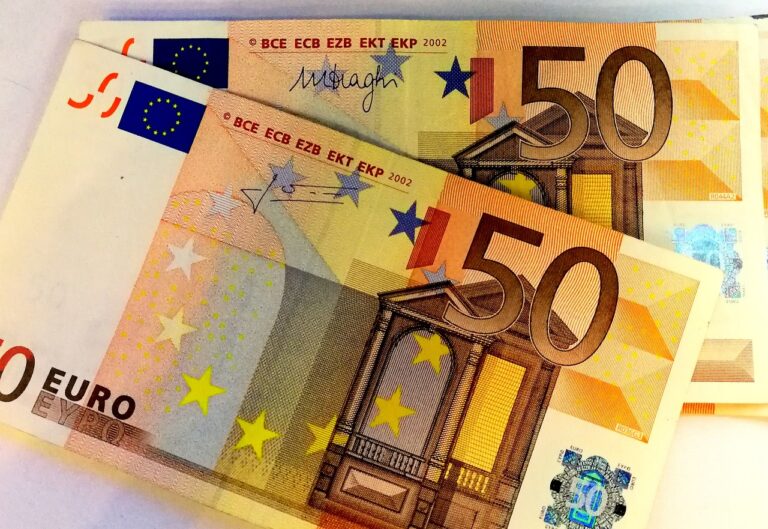How to Build a Fashion Brand with Ethical Marketing: Sky247.net login, Gold365.com, Gold365.win
sky247.net login, gold365.com , gold365.win: Building a fashion brand with ethical marketing is crucial in today’s world where consumers are increasingly becoming more conscious about the impact of their purchasing decisions. By prioritizing ethical practices in your marketing strategies, you can not only attract a loyal customer base but also contribute towards creating a more sustainable and responsible industry.
Here are some key steps to building a fashion brand with ethical marketing:
Understanding Ethical Marketing
Before we dive into the specifics of building a fashion brand with ethical marketing, it’s important to understand what ethical marketing entails. Ethical marketing involves promoting products or services in a way that is honest, transparent, and socially responsible. It also includes considerations such as sustainability, fair trade practices, and the well-being of workers throughout the supply chain.
1. Define Your Ethical Values
The first step in building a fashion brand with ethical marketing is to define your ethical values. What are the causes that matter to you? Is it sustainability, fair labor practices, animal welfare, or something else? By identifying your core ethical values, you can build a brand that aligns with your beliefs and attracts like-minded consumers.
2. Source Ethical and Sustainable Materials
One of the most important aspects of ethical marketing in the fashion industry is the sourcing of materials. Choose suppliers that adhere to ethical and sustainable practices, such as using organic or recycled materials, paying fair wages to workers, and minimizing waste and carbon emissions.
3. Transparent Supply Chain
Transparency is key to building trust with consumers. Make sure to communicate openly about your supply chain, including where your materials are sourced, how your products are made, and the conditions in which workers operate. Being transparent will not only build credibility but also showcase your commitment to ethical practices.
4. Fair Labor Practices
Ensuring fair labor practices throughout your supply chain is essential for building a fashion brand with ethical marketing. This includes paying workers fair wages, providing safe working conditions, and respecting their rights. By prioritizing the well-being of workers, you can showcase your commitment to social responsibility.
5. Educate and Engage Consumers
Educating consumers about the importance of ethical practices in the fashion industry is key to building a loyal customer base. Use your marketing campaigns to raise awareness about ethical issues, showcase your commitment to sustainability, and engage consumers in conversations about responsible fashion choices.
6. Collaborate with Ethical Partners
Collaborating with like-minded brands and organizations can amplify your efforts to build a fashion brand with ethical marketing. Partner with ethical fashion designers, sustainable fashion bloggers, or environmental NGOs to reach a wider audience and showcase your shared values.
7. Embrace Slow Fashion
Slow fashion is a movement that promotes sustainable and ethical practices in the fashion industry. By embracing slow fashion principles, such as producing high-quality and timeless pieces, minimizing waste, and promoting conscious consumption, you can differentiate your brand and appeal to consumers seeking responsible fashion choices.
FAQs
Q: How can I communicate my ethical values to consumers effectively?
A: To communicate your ethical values effectively, use your marketing channels, such as social media, email newsletters, and your website, to showcase your commitment to ethical practices. Share behind-the-scenes glimpses of your production process, highlight the impact of your sustainability initiatives, and engage with consumers on ethical issues.
Q: How can I ensure that my suppliers adhere to ethical practices?
A: Conduct thorough due diligence on your suppliers, including visiting their facilities, requesting certifications, and asking for references. Establish clear agreements that outline your expectations for ethical practices, such as fair labor conditions and environmental standards. Regularly monitor and audit your suppliers to ensure compliance.
Q: What are some examples of successful fashion brands with ethical marketing?
A: Some examples of fashion brands that have successfully built their brand with ethical marketing include Patagonia, Everlane, Reformation, and Stella McCartney. These brands prioritize sustainability, transparency, and social responsibility in their marketing strategies and have garnered a loyal following of conscious consumers.
In conclusion, building a fashion brand with ethical marketing requires a commitment to sustainability, transparency, and social responsibility. By defining your ethical values, sourcing ethical materials, ensuring fair labor practices, educating consumers, collaborating with ethical partners, embracing slow fashion, and communicating effectively, you can create a brand that resonates with a socially conscious audience and contributes towards a more ethical fashion industry.







